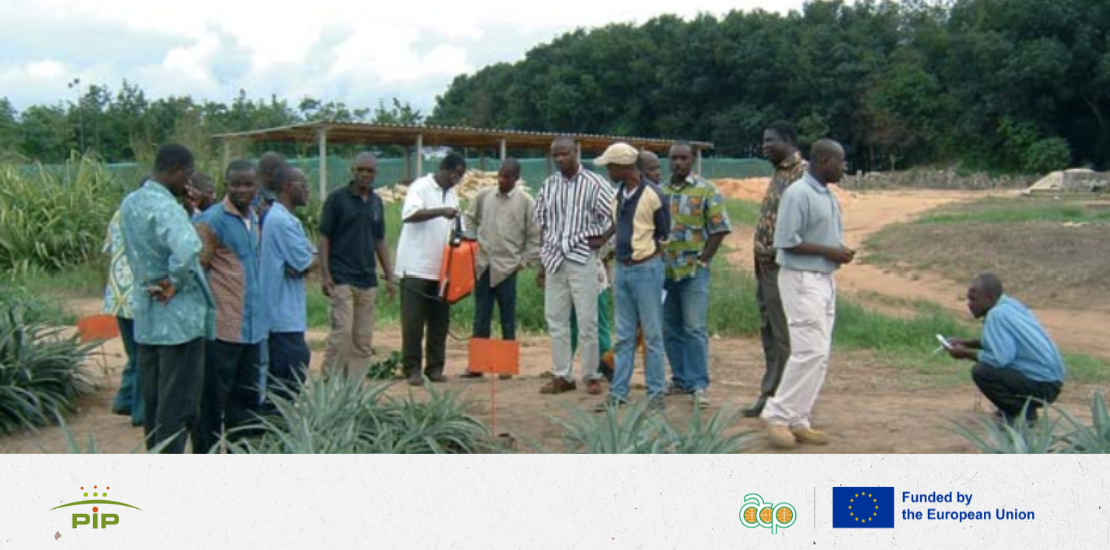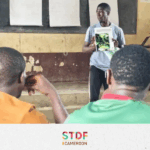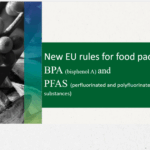- 29/10/2024
- Posted by: Sandra Borma
- Category: News

Flashback 2005 : “Training Knowledge without bounds”
Source PIP Magazine n°8, November 2005
“Training is one of the main priorities of PIP in its capacity-building actions for companies and for the ACP horticultural network as a whole. To date, more than 700 people have participated in collective and in-company training sessions organised by the PIP Training Unit, and 130 consultants in several countries have received a training of trainers .
“Knowledge should know no bounds,” declares Edward Ngenga, casting a glance over his ten-acre farm. This small-scale farmer from Kiseria – about 30 kilometres from Nairobi, Kenya – began EurepGAP-certified production in January 2005. His desire to increase his income by working for the export market led him to start growing green beans and mangetout peas for East African Growers (EAGA), one of the biggest Kenyan operators in the sector. This 62-year-old engineer – a latecomer to agriculture – did not wait long before dividing his land into plots and providing the necessary infrastructure: toilets, handwashing equipment, warehouse for stocking phytosanitary products, coal-fired cold storage, etc. He admits that he lacks experience in crop protection, and applies the East African Growers field adviser’s instructions to the letter for pesticide choice and amounts. “I’m only too pleased to learn,” he says, looking with satisfaction at the rain clouds waiting to empty themselves over his crops.
Two pillars
The training strategy developed by PIP rests on two pillars: training of trainers and collective training. Training of trainers consists in reinforcing the technical knowledge of local experts (agronomists, hygienists, etc.) by providing them with teaching methods. After training, workshop participants are therefore required to have gained solid technical knowledge of the key areas of food safety and crop protection, as well as the capacity to train the support and technical staff of local companies. Yannick Van Landeghem, farm supervisor for Lecofruit (Madagascar), received training of trainers in Dakar in October 2004: “The theoretical part of the course was presented in the form of lectures, and the practical part took place in the field, with a hands-on approach to the theory,” he explains. “The main role of the technical part was to provide tangible elements that would facilitate an understanding of the lectures, which examined issues seldom taught in study programmes. What I got most out of the seminar was the methodology they taught us; it has allowed me to pass on information and work methods effectively by adapting them to the small growers I work with.”
To date, 130 people have received a training of trainers . Since 2004, most of them have been part of a pool of local providers/experts which the PIP relies on constantly to give collective training. These collective training sessions are intended for company managers (quality assurance and traceability managers, production managers, packhouse managers, small-grower managers, etc.) in order to prepare them to implement and ensure the consistency of food safety control systems. The topics dealt with during these sessions focus on the management of food safety procedures, European regulations, the safe use of pesticides, hygiene, tools for managing traceability and production, the identification of harmful organisms and crop protection, among others. Once the company managers have received a certain level of training, they are expected to use their new knowledge in the field by passing it on to the very roots of the company. This includes, for example, farm labourers, packhouse employees, small growers, etc.”
The Pesticides Initiative Programme (PIP) was financed by the European Development Fund. The ACP Group of States and the European Commission entrusted responsibility for its implementation to COLEACP (today COLEAD).





